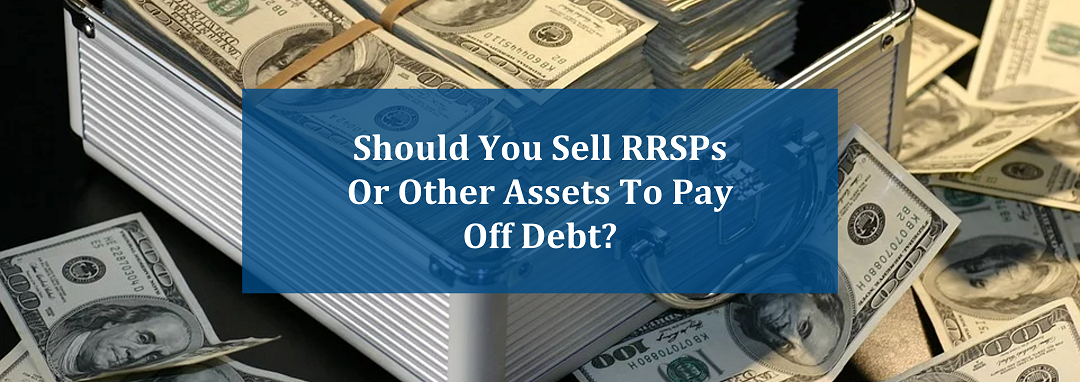Should You Sell RRSPs Or Other Assets To Pay Off Debt?

Selling Assets To Pay Off Debt Is Not Always A Good Idea.
Have you ever wondered if you should sell your assets to get out of debt?
Are you unsure if it will actually make a difference or if there is a better option?
The ideal situation would be to keep all of your assets and get rid of your debt quickly.
Let’s discuss further.
Debt can be a symptom of any number of problems and life circumstances. However, it is important to understand that YOU ARE NOT YOUR DEBT.
At Halifax Debt Freedom, we'd love to discuss how we can help you become debt free.
The issue with selling assets to pay off debt
I spend a lot of time reading up on personal finance blogs, forums, and chatting with financial advisors. The recommendation to look at selling existing assets to pay off debts is a recommendation you will often receive. I don’t know how many times I have had clients come into my office having completely liquidated their savings to pay off their debt. This often is a recommendation from another financial professional.
At face value – this advice makes sense. If you have $50,000 in an RRSP account, why wouldn’t it make sense to withdraw it to pay of $30-40,000 of debt? Unfortunately, this advice is given with a lack of knowledge into all of the various debt help options.
So why doesn’t it make sense to sell assets to pay off debt? The reason is that most of the assets being used would otherwise be protected in more invasive forms of debt restructuring.
Of course, restructuring debt doesn’t come without consequences but hopefully, by the end of the article, you will understand our position.
Before we get into the scenario it is important to understand that debt restructuring is extremely complicated. There is no way this article could cover each and every situation. While we believe that in some cases it is a bad idea to use assets to pay off debt there are situations where it may be warranted. We recommend seeking a professional opinion.
The Scenario
The average client that has $30-40k of unsecured debt can expect to reduce that debt to approximately $6,000-$12,000 depending on their individual circumstances. This comes with a credit impact, which is admittedly bad (but not as severe as bankruptcy) but is certainly survivable.
So let’s look at 2 scenarios: One person who withdraws their entire RRSP which let’s say would hypothetically pay off all of their debt. And the other who restructures their debt through a debt restructuring program.
Let’s assume the individual can afford $500 p/m in either a debt payment or savings. Let’s assume the individual is 35 years old and wants to retire when they are 65.
Using assets to pay off debt
Let’s assume someone has $50,000 in RRSPs and they are looking to pay off $30,000 in debt. When they would go to withdraw the RRSP they would receive $35,000 (30% tax would be withheld upon withdrawal). Let’s assume that they pay off the $30,000 and then keep $5,000 to pay towards the extra tax they would need to pay at tax time.
Because they are completely debt-free they can now invest $500p/m into an investment account. They would end up with, at 65, $584,726.30. This is obviously a sizeable amount of money.
However….. Let’s consider what would happen had they restructured.
Using restructuring to pay off debt
Again, our typical client would eliminate $30k in debt with approximately $6k – 12k overall. Let’s assume the worst – that they have to repay back $12,000. This plan would be a five-year plan at $200 per month. They would retain their entire $50,000 in their investment account.
After five years the would have $91,486.34. But here is where things get interesting. At the end of 5 years, they get to increase their investing by $200 per month for a total of $500 per month.
Conclusion
This article was written by David Moffatt, a Debt Relief Expert. He has helped assist in creating plans that have helped save Nova Scotia residents over $30 million dollars of consumer and tax debt since 2015. We believe that no consumer should have to struggle with the stress of overwhelming debt. Our debt restructuring strategies can help you cut your debt by up to 80%.
If you are struggling with debt please reach out. It hurts to continue to suffer financially. Halifax Debt Freedom services Halifax, Dartmouth, Bedford, Sackville the entirety of HRM, and all of Nova Scotia.

